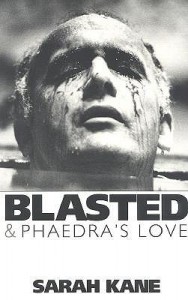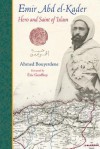Warwick
Monað modes lust mæla gehƿylce ferð to feran.
Blasted

There have been three great shocks in post-war English theatre. The first was Edward Bond's Saved (1965), which features a baby being stoned to death on stage; the second was Howard Brenton's The Romans In Britain (1980), the first on-stage depiction of homosexual intercourse. Sarah Kane's Blasted was the third, and probably the most shocking of them all.
It premiered in 1995; I read it a couple of years later and although I was admittedly fairly young and impressionable, I still remember how numb and dazed I felt for about a week afterwards. A few months after that, in February 1999, newspapers reported that Sarah Kane had taken a deliberate overdose of prescription drugs. She was rushed to hospital in London and revived, but a few days later she managed to sneak away from her nurses' supervision and hanged herself with her shoelaces. She was 28.
Since then, it has become common to ascribe the extremes of her work to her troubled state of mind. Although there is certainly some truth in this, works like Blasted are in no way just therapeutic purging. She was a technically brilliant writer, and all her work shows a very incisive use of the theatre space and the possibilities of stagecraft – this is what makes her so powerful and so hard to ignore.
Blasted was her first full-length play, and the setting is a northern English town after society has broken down into civil war. As is usual with civil wars, this entails torture, sexual violence, rape, cannibalism and other brutality and Kane holds nothing back in putting across a certain form of horror with a particular kind of bleakly efficient scripting.
People have misinterpreted the obscenity of the play as deliberately far-fetched, a series of grotesqueries manufactured for shock value. Such people need to read more about Bosnia, or Rwanda. The brilliance of the play is precisely to make this stuff real by transposing it to Leeds.
There are only three characters – Cate, Ian and an unnamed Soldier. Most of the scenes are dialogues between two of them. The stage directions are astonishing in what they ask of the actors.
It is a play that shows human beings in their last resort, naked and shitting in fear, lashing out not because they are ‘evil’ or perverted but because they are utterly heartbroken and desperate.
I can feel that lick of despair in my stomach just remembering how some of this plays out. Although. And yet. It is not completely without all hope, either – indeed Caryl Churchill famously called the play ‘rather tender’.
Nevertheless, reviewers staggered out of the first production at the Royal Court white-faced in disbelief, and most followed the general line set by Jack Tinker in the Daily Mail:
Although he misses the whole point of the play, I like his opening: ‘Until last night I thought I was immune from shock in any theatre. I am not.’ As it happens, once people started to recover from the initial impact of the play, its qualities gradually became clearer, and by the time Kane committed suicide it was already being acknowledged by a lot of critics as something uniquely impressive. A revival in 2001 brought more understanding and admiring critical notices.
I've never seen it staged, and I'm not entirely sure I'd like to. Actually this is a difficult play to rate, because even if you admire it it's hard to feel affection towards it.
But once seen (or read), it's never forgotten, and it has loomed up in my mind many times since I first encountered it – both while covering conflict zones myself, and also just at home when reading the newspapers or listening to politicians. Blasted is out there, waiting for us. It stands for what we need to avoid at all costs.
 4
4




